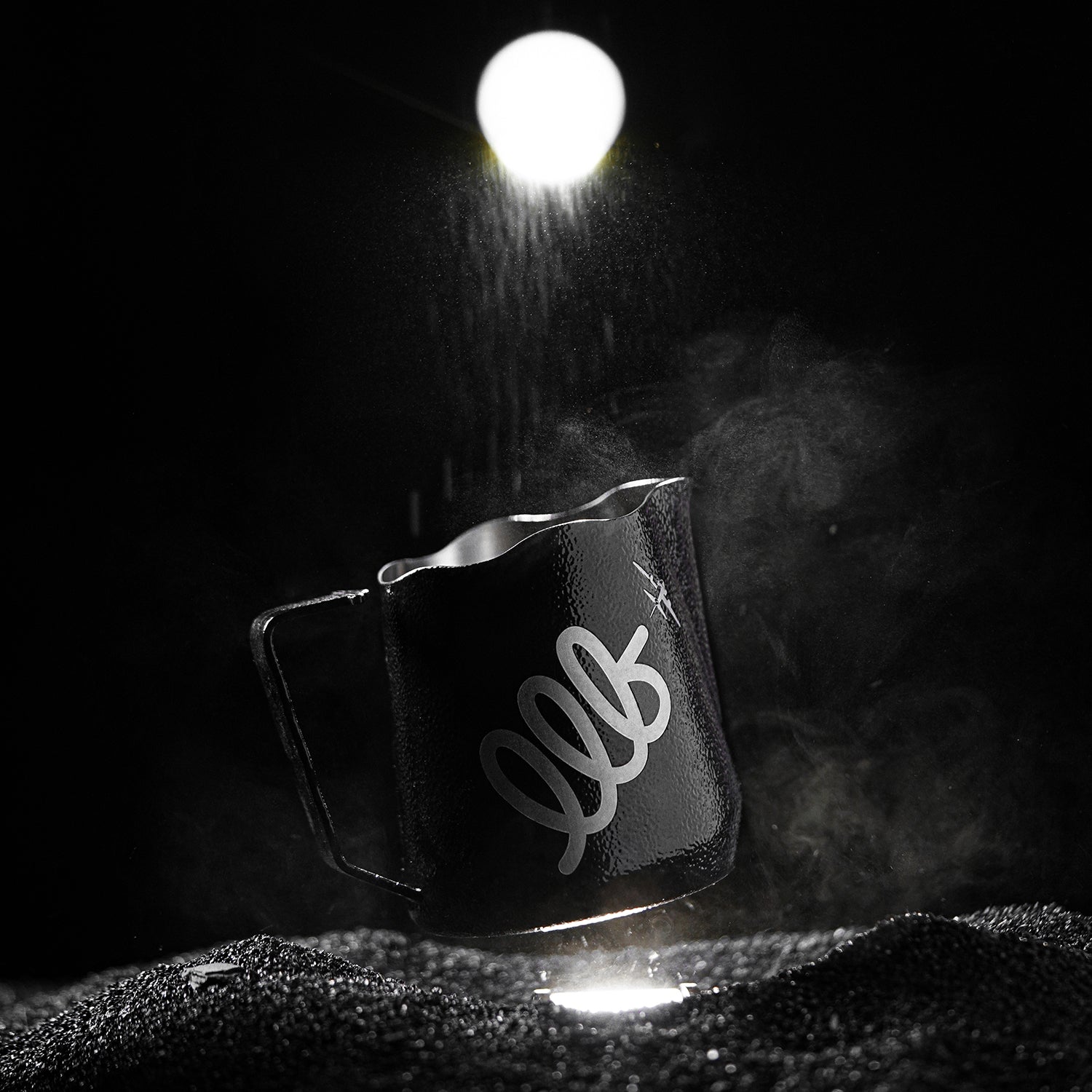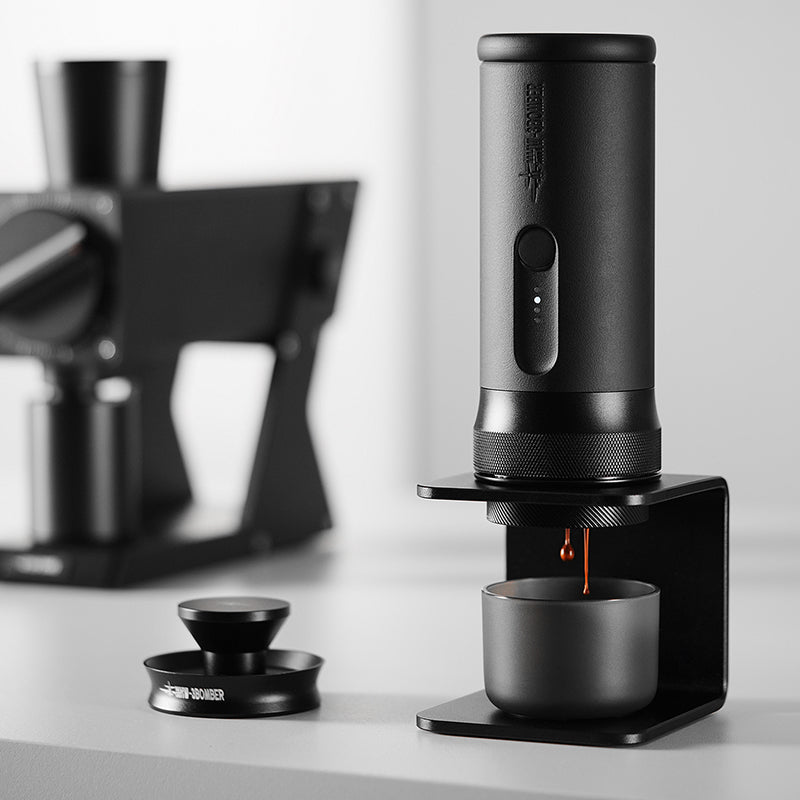MHW-3BOMBER
12-08-2024
Quick Guide: Key Differences Between Coffee and Espresso You Need to Know
Unlock the Essentials: Master Your Brew in Just a Minute!

In a hurry? We'll quickly break down the differences for you:
| Aspect | Coffee | Espresso |
|---|---|---|
| Roast | Dark, Medium, Light | Dark |
| Brewing Time | 4-5 minutes | 25-30 seconds |
| Grind Size | Medium to coarse | Very fine |
| Brewing Method | Drip, pour-over, or French press | Forced hot water through tightly packed grounds under pressure |
| Flavor | Milder, less concentrated | Strong, concentrated, thicker texture |
| Serving Size | 8-12 oz | 1-2 oz |




Table Of Content
- What is Coffee?
- What is Espresso?
- Coffee vs. Espresso Caffeine: Which Drink Has More?
- Espresso vs. Coffee: Key Differences in Roast, Grind, and Brew
- Do Espresso and Coffee Use Different Beans?
- How to Make Espresso?
What is Coffee?
Coffee is a widely consumed drink made by infusing roasted coffee beans — the seeds of berries from the Coffea plant — with hot water. The grounds are rich in oils, flavors, and caffeine content obtained from this extraction.


A dynamic final product can be presented in a number of ways, for example: drip coffee, French press or cold brew. With bold flavors, and many different strengths achievable depending on how it is brewed, it is also distinct for its aroma.
What is Espresso?
Espresso is essentially strong coffee. It is prepared by passing a small amount of almost boiling water through very finely powdered coffee beans at a very high pressure. The outcome is a very thick and strong coffee that has crema (foamy cream) formed on its top.
A large number of famous drinks are based on espresso, such as lattes and cappuccinos. Served differently from regular coffee, espresso comes in smaller portions; usually one ounce of the drink, but the taste is far more powerful with much more caffeine content per ounce.

Coffee vs. Espresso: Which Has More Caffeine?

Conversely, regular coffee is less concentrated. The average amount of caffeine in an 8-ounce (240 milliliter) cup of brewed coffee is 95 mg.
Although this quantity is greater than one espresso shot, it is distributed throughout a greater volume.
In conclusion, espresso contains more caffeine per ounce than regular coffee, but because coffee is typically eaten in bigger quantities, a typical cup of coffee typically contains more caffeine overall than a single shot of espresso.
When comparing the caffeine content of coffee and espresso, it’s important to consider both the serving size and the concentration.
Espresso is much more concentrated than regular coffee. A standard serving of espresso, which is about 1 ounce (30 milliliters), contains approximately 63 milligrams of caffeine.
This high concentration means that espresso has more caffeine per ounce compared to coffee.

Espresso vs. Coffee: Key Differences in Roast, Grind, and Brew
The difference between espresso and regular coffee lies in their roasting, grinding and brewing processes.
If you are still not very clear about the difference between espresso and regular coffee, we MHW-3BOMBER give you a more detailed and intuitive comparison, so that you can understand more thoroughly before making coffee.
 1
1Roasting
Espresso is typically roasted more deeply. This darker roast is perfect for the strong character of espresso since it lessens acidity and increases the full-bodied flavor. Espresso beans are typically roasted with an emphasis on caramelization and richer coffee oils.
You can roast regular drip coffee beans to a light, medium, or dark roast. Darker roasting produces a deeper, fuller flavor, while light roasting preserves more of the bean's natural flavor and acidity. The final flavor of coffee can be greatly influenced by the level of roasting.
 2
2Grinding
A extremely fine grind is necessary for espresso. Since flavors may be extracted from water quickly and effectively in a short extraction time—typically 25–30 seconds—a fine grind is necessary. To produce the proper pressure and extract the distinctive coffee oils, the grind size is crucial.
Regular coffee is typically made using drip or French press methods, which require a coarser grind. For drip coffee, the grind size should be medium; for French press coffee, it should be coarse; and for hand-brewed coffee, it should be medium-fine. During these prolonged brews, a coarser grind helps avoid over-extraction and bitterness.
 3
3Brewing
A specialty machine that pushes hot water over finely ground coffee at high pressure (about 9 bar) is used to brew espresso. A tiny, robust coffee with a thick covering of coffee oils is produced with this approach. Brewing takes only a few seconds, typically between 25 and 30.
There are several ways to brew regular coffee, such as drip, manual brewing, French press, or cold brew. Every technique has a unique water temperature and brewing period. For instance, French press coffee requires about 4 minutes to steep, but drip coffee makers typically brew coffee in 4–6 minutes. Compared to espresso, these techniques extract flavors more slowly.
Summary
Espresso: deep roasting, very fine grinding, high pressure extraction, short brewing time.
Coffees: varying degrees of roasting (light to dark), coarser grinds, different brewing methods and times.
Each method produces a unique flavor and consistency to satisfy different preferences and uses.
Do Espresso and Coffee Use Different Beans?
It is, in essence, the same. The only thing that separates espresso from regular coffee, aside from the method of brewing and processing, is the type of coffee beans used.
The same type of coffee beans, like Arabica or Robusta, can be used to make both espresso and plain coffee. The preferred flavor profile and individual preferences will determine which beans are used.
Although the flavor intensity and reach of a medium roast will not be as great as that of a dark or espresso roast, you can still ground them very fine to achieve the right consistency for the espresso brewing method.
In essence, the size of the grind and the level of roasting will be changed to fit even though the beans themselves can remain the same.


How to Make Espresso?
We at MHW-3BOMBER offer you the MHW-3BOMBER Manual Lever Espresso Machine Sonic S7, a manual espresso machine designed for novices and seasoned enthusiasts alike to unleash unique flavors and enhance your coffee experience.
Preheat the Machine: After turning on, let your espresso maker warm up to the ideal brewing temperature, which is typically between 190 and 200°F (88 and 93°C).
Prepare the Portafilter: To get ready, take out the bottomless portafilter from the device. Fill the portafilter with the ground coffee. Use roughly 18–20 grams of coffee for a double shot.
Tamp the Grounds: To create a smooth and level surface, forcefully and evenly press the coffee grounds into the portafilter using a coffee tamper. Aim for a pressure of roughly thirty pounds.
Brew the Espresso:
Lock the portafilter into the machine.
Start the brewing process. The espresso should flow steadily, taking about 25-30 seconds to extract 1-2 ounces (30-60 ml) of espresso.
Serve Immediately:
Espresso is best enjoyed fresh. Serve it in a pre-warmed cup to maintain its temperature and crema.
For more detailed information on making espresso, check out our blog: PRODUCT GUIDES
Exploring the Sonic S7
Embrace Playful Espresso Crafting
You May Also Like
Want To Receive More Coffee Guidance?
Follow us to receive the latest update on our coffee experience




